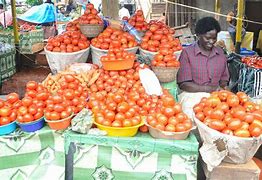Nigeria’s Economic Paradox: Growth on Paper, Struggles in Reality
Nigeria’s economic landscape is caught between two conflicting narratives. On one side, government officials and economic analysts tout impressive progress—exchange rate stabilization, declining inflation, and lower fuel prices. On the other, millions of Nigerians are grappling with rising living costs, weakened purchasing power, and an unrelenting sense of financial hardship.
Government’s Optimistic Outlook
President Bola Tinubu’s administration has painted a hopeful picture of the economy’s trajectory. Recent policies, they argue, have begun to bear fruit, resulting in a strengthened naira, reductions in fuel costs, and a slight dip in food prices. According to official data, inflation is showing signs of easing, and foreign exchange reserves have seen a boost, signaling potential economic stability.
Minister of Finance, Wale Edun, insists that Nigeria is on the right path. “The fundamentals are improving, and investors are regaining confidence in our economy,” he stated. The Central Bank of Nigeria (CBN) has also reassured Nigerians that its monetary policies are designed to sustain these gains, ensuring long-term economic growth.
The Harsh Reality for Nigerians
However, beyond the official figures, many Nigerians tell a different story—one of relentless financial struggle. The so-called economic improvements are yet to translate into relief for the average citizen. Prices of essential commodities remain high, businesses continue to struggle with overhead costs, and wages fail to keep up with inflation.
“I can’t see any improvement,” says Chinedu Okafor, a small business owner in Lagos. “Every day, we wake up to new price hikes. It’s harder to sustain a business, and customers are spending less.”
The removal of fuel subsidies and fluctuating exchange rates have left many unable to afford basic necessities. While fuel prices have dropped slightly, they remain significantly higher than before subsidy removals. Transportation costs remain a burden, further driving up the cost of goods and services.
What’s Really Happening?
Economic experts suggest that while some indicators show positive movement, they don’t necessarily reflect immediate relief for the masses. The stabilization of the naira, for instance, benefits foreign investors and large corporations but has yet to trickle down to small businesses and individuals.
“Nigeria’s economic policies need to be people-centered,” says economist Dr. Aisha Bello. “Macroeconomic stability is important, but unless the average Nigerian sees a real difference in their daily life, economic growth remains an illusion.”
The Road Ahead
Nigeria stands at a crossroads. While data might suggest a rebounding economy, public sentiment reveals deep-seated frustration. For the country’s economic recovery to be meaningful, the government must ensure that its policies bring tangible benefits to the people—affordable food, better wages, and real purchasing power.
Until then, the paradox remains: an economy that appears to be recovering on paper but feels increasingly difficult to survive in for millions of Nigerians.

